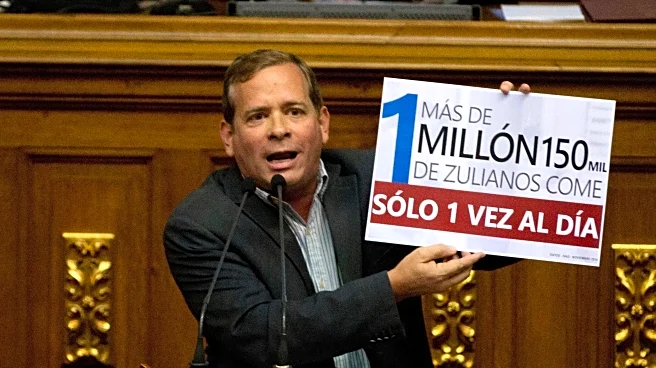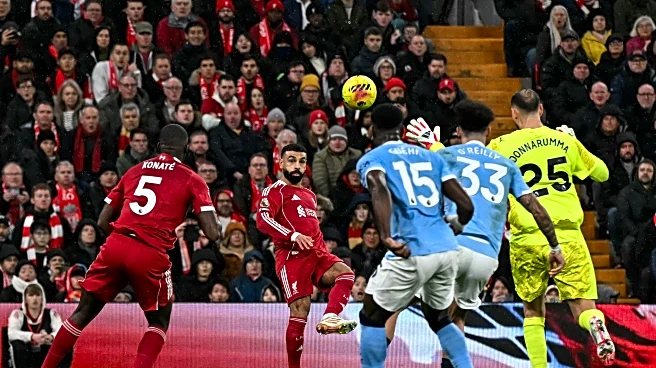What's Happening?
Federal Reserve Bank of Boston President Susan Collins has expressed skepticism regarding the necessity of a rate cut at the upcoming December monetary policy meeting. In a CNBC interview, Collins highlighted the current state of the economy and inflation as reasons for maintaining a restrictive monetary policy. She emphasized that the economy appears resilient, and the September hiring data was mixed, suggesting that the job market is not yet showing signs of significant slowing. Collins, who holds a vote on the Federal Open Market Committee, is among several Fed officials cautious about lowering short-term borrowing costs. The Fed had previously cut rates in September and October to address a softening job market and to exert downward pressure
on inflation, which remains above the Fed's 2% target.
Why It's Important?
The stance taken by Susan Collins reflects a broader debate within the Federal Reserve about the appropriate monetary policy in the face of persistent inflation and a resilient economy. Maintaining current interest rates could help moderate inflation as tariff pressures pass through the economy. However, a rate cut could provide insurance against potential economic softening. The decision will impact borrowing costs for businesses and consumers, influencing economic growth and inflation. Stakeholders such as businesses, investors, and policymakers are closely monitoring these developments, as they will affect financial planning and economic forecasts.
What's Next?
As the December meeting approaches, Federal Reserve officials will continue to assess economic indicators, particularly the job market, to determine the necessity of a rate cut. The mixed September hiring data and ongoing government shutdown have deprived policymakers of crucial data, complicating decision-making. The Fed's decision will likely be influenced by further economic data releases and statements from other key officials, such as New York Fed leader John Williams, who has hinted at potential easing. The outcome of the meeting will be closely watched by financial markets and economic stakeholders.

















